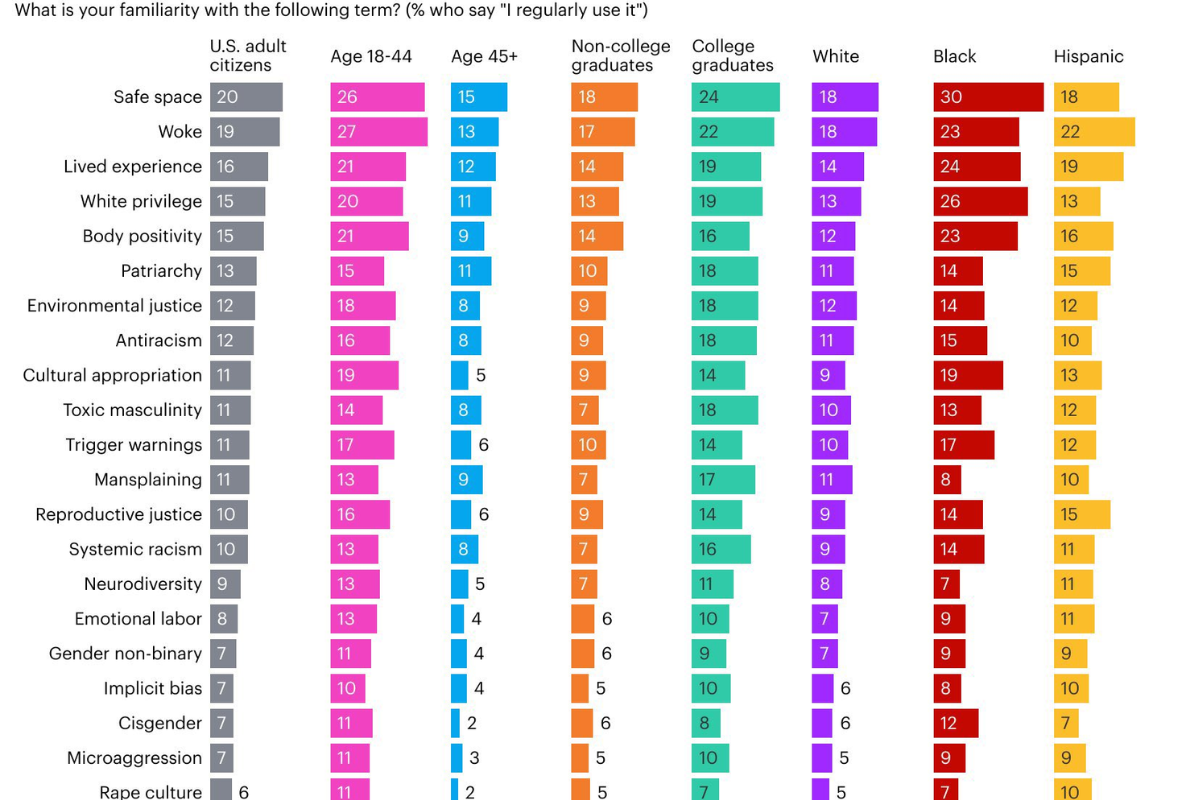NEW DELHI: A recent study, highlighted in a viral tweet by the account @EndWokeness, has sparked widespread discussion by suggesting that individuals associated with “woke” ideology may communicate using a unique linguistic style. The post, accompanied by an intriguing chart, has drawn attention to how socio-political beliefs influence language use in distinct ways.
NEW STUDY: Woke people literally speak a different language than everyone else pic.twitter.com/rc4fhuQECK
— End Wokeness (@EndWokeness) November 23, 2024
The study analyzed social media interactions, public speeches, and written content from individuals across the political spectrum. Researchers found that those labeled as “woke” often employ highly specific terms tied to progressive ideologies. Phrases like “intersectionality,” “systemic oppression,” and “decolonization” appear frequently, along with a preference for inclusive language and an emphasis on emotional tone.
ALSO READ: Elon Musk praises India’s voting efficiency, criticizes California’s vote count delays
According to the findings, this group tends to frame issues using abstract, theoretical terminology rooted in academic disciplines such as sociology and cultural studies. Additionally, they often prioritize inclusive language practices, such as the use of pronouns in introductions or gender-neutral terms like “Latinx” instead of “Latino” or “Latina.”

The tweet captioned the study’s findings with: “Woke people literally speak a different language than everyone else,” sparking a mix of reactions. Critics accused the post of oversimplifying complex sociolinguistic phenomena, while supporters viewed it as validation of concerns about ideological echo chambers.
ALSO READ: Vivek Ramaswamy, Elon Musk to launch ‘DOGEcast’ podcast about government cost-cutting
Dr. Emily Grant, a sociolinguist who was not involved in the study, explained, “Language is a tool of identity and belonging. When individuals use certain terms, they signal their values and align themselves with specific communities. The so-called ‘woke’ vocabulary reflects deeper societal shifts toward inclusivity and awareness.”
However, detractors argue that the linguistic trends highlighted in the study contribute to polarization. They claim that such jargon can alienate those unfamiliar with the terminology, deepening ideological divides.
The study highlights how language evolves alongside cultural shifts, acting as both a mirror of societal change and a marker of division. Whether these trends are celebrated or criticized, they underscore the powerful role words play in shaping and reflecting modern identity.









